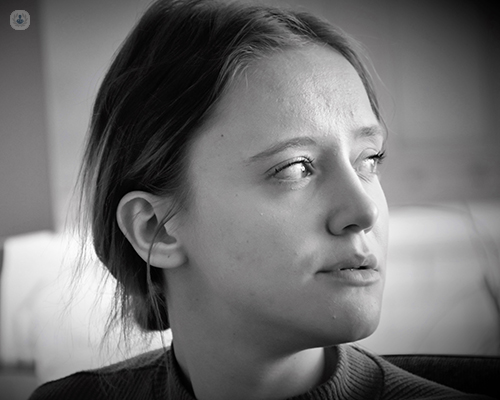Head and neck cancer: types and outlook
Escrito por:There are many different types of cancer that can affect the head and neck. Esteemed ENT surgeon Mr Prasad Kothari explains what these are, survival rates and treatments for head and neck cancer.

Can you feel cancer in your neck?
Head and neck cancer can present as a mass in the neck. This swelling is typically painless and may not give any other symptoms. Any neck swelling which does not settle in 2-3 weeks should be investigated. It is worth noting that not all painless neck swellings are cancerous and a large proportion will be due to neck cysts and other benign conditions.
How many types of head and neck cancer are there?
The head and neck make up the most complex and diverse anatomical site. Every region in the head and neck can develop a cancer. These are broadly divided into different regions, for example:
- Oral cancer (mouth cancer)
- Throat cancer (voice box, tonsil, tongue, etc.)
- Thyroid cancer
- Salivary gland cancer
- Nose and sinus cancer
- Jaw cancer
Each of these cancers have multiple subtypes and can present and behave differently. The most common type is squamous cell cancer, which arises from the lining of the mouth and throat.
How long can you live with squamous cell carcinoma?
Survival from squamous cell cancer in the head and neck is dependent on the stage of the cancer. Some early stage cancers (stage 1) have excellent cure rates, even over 90%. However, some advanced cancers (stage 4) have a very low survival rate, around 20-30%. Survival from head and neck cancer also depends on the site from where the cancer has developed and other patient-related factors. Early diagnosis and prompt treatment is paramount to good outcome and survival.
Can immunotherapy work to treat head and neck cancer?
Immunotherapy is a relatively new form of treatment for head and neck cancer. Current studies show that immunotherapy has a beneficial role in some advanced cancers, but not as a primary modality of treatment. The mainstay of treatment for head and neck cancer is either surgery, radiotherapy with or without chemotherapy or a combination of all treatments. The decision to use a particular treatment modality is made by a multi-disciplinary team, also known as MDT or tumour board, rather than an individual. This decision is taken after a detailed discussion of scans, biopsy results, and the patient’s fitness for treatment. It also takes into account current evidence from UK-based and international studies.
If you are concerned you might have some type of head and neck cancer, book an appointment with Mr Kothari at his Top Doctors profile.


